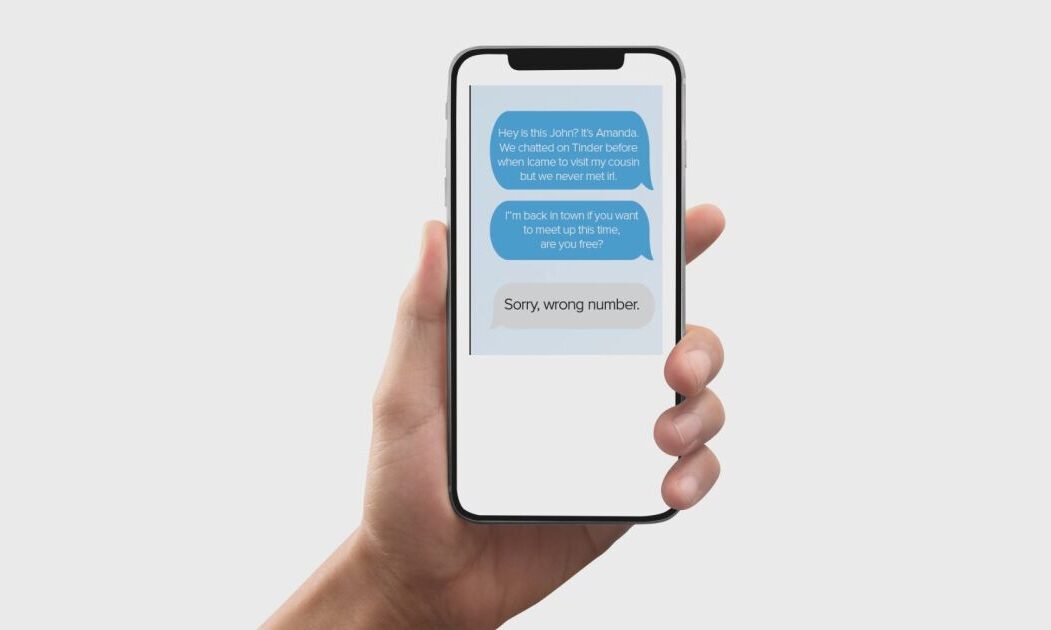So-called wrong number scams — in which con artists send out huge batches of eye-grabbing but innocuous texts — have become the introduction du jour for scammers looking for people to bilk for money.
The scams — in which con artists send out huge batches of eye-grabbing but innocuous texts — have become the introduction du jour for scammers looking for people to bilk for money.
The text message came late Tuesday. Like others I’d been getting recently, it wasn’t an obvious scam from the outset — no promise of a warranty or that I’d won a prize, no link to a suspicious website — but instead it seemed to be a frantic message intended for someone else.
It’s the kind of text message that has become common for just about anyone with a smartphone.
“Una, good evening, tomorrow morning the contract time of 10am is shifted to 3pm for signing, I don’t feel well, I need to go to the hospital tomorrow morning to see the doctor”
I responded that it was the wrong number. Of course, it didn’t end there. The person on the other end, “Anna,” struck up a conversation.
Within a few minutes, she was offering to help me invest in crypto currency
. So-called wrong number scams — in which con artists send out huge batches of eye-grabbing but innocuous texts — have become the introduction du jour for scammers looking for people to bilk for money. If recipients respond, scammers will try to establish relationships with the potential victims and eventually try to persuade them to give away their savings under the false impression that they’re investing in cryptocurrency.
Erin West, the deputy district attorney in charge of the high technology crimes unit in Santa Clara County, California, said “accidental” text messages have become one of the most common new ways to trick people in the same crypto scams her office has tracked for several years.
“Some are like, ‘Hey, can I make an appointment for my dog at your salon?’” said West, a top prosecutor for crypto scams. “They’re broadening the way they will entrance you into the same scam. They are all scams, and I think they are all crypto-investment scams.”
There are no definitive statistics about how widespread such scams have become. But the Federal Trade Commission tracks spam and scam complaints, and 2022 is on track to be the first year when more people have reported scammers’ contacting them by text rather than by phone, said Juliana Gruenwald, an agency spokesperson.
The scams don’t indicate any security issue with people’s smartphones or personal information, although there’s no reliable way to block them. The Federal Communications Commission, which issued a warning about spam and scam texts Thursday, said ignoring them is the most effective way to make sure you’re not scammed.
Chester Wisniewski, a principal research scientist at the cybersecurity company Sophos, which has investigated several such cases, said the scammers tend to persuade victims to switch their conversations to the Telegram messaging app, then slowly persuade them to download an unvetted investment app that purports to store cryptocurrency with incredible rates of return.
“It’s like, ‘Jeff give me a call,’ and you’re like: ‘What? I’m obviously not Jeff,’” Wisniewski said.
“But they’re looking for engagement. As long as you respond, they can start the conversation,” he said.
Scammers even persuade their victims to send small amounts of crypto that they can withdraw to prove that the system is real, then encourage them to invest more, Wisniewski said. Only after the victims try to withdraw large investments do they realize they’ve been defrauded.
While most people don’t fall for such scams — the FTC’s estimates for this year found that 6% of people who reported text message fraud actually lost money on them — those who do become victims can lose enormous sums.
An FBI warning issued last week found that since late last year, at least 244 people have lost a combined $42.7 million to such fake crypto investment scams.
One victim, a U.S. man who agreed to speak only on condition that his name not be published because he feared it could harm his business prospects, said he lost half a million dollars to the scheme.
“It’s really painful based on the dollar value. I’m really disappointed in myself but at the same time really impressed by the gal that conned me into this,” he said.
He said he started talking earlier this year to a scammer who texted him a single message out of the blue — “Hi” — and waited until he responded that she had the wrong number before she continued. The scammer, who claimed to be a younger woman who had recently moved to the U.S., spoke with him a few times by phone and persuaded him to move the conversation to Telegram. Through their weeks of talking, he agreed to invest more and more money before he realized he’d been had.
“I want to say she waited 20 days and a thousand text messages before she got into investments,” he said. “I was so sick to my stomach. I just gambled on a card table, like red or black on a roulette wheel, $500,000, and I hit the wrong number,” he said. “And I’m not a bettor. I’m kind of a cheapskate.”


Leave a Reply